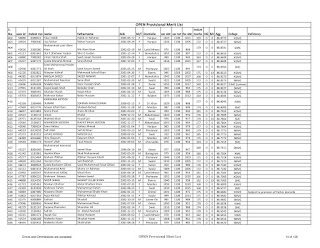📒ETEA past papers yearwise 2010-2019 free PDF download
🖊️ This page is about how to
👉 download free PDF ETEA past papers yearwise.
👉 Download BOM series books samples.
👉 Procedure to buy BOM series books.
👉 Procudure of free bom online Sunday test.
1. 5000 Biology Key Points ( Available 🌟)
2. 5000 Biology MCQs (Available 🌟)
3. Physics Keypoints & MCQs ( Available 🌟)
4. A Solution to ETEA past papers chapterwise & topicwise (Available 🌟)
5.Chemistry Key points & MCQs (Available 🌟)
⬇️ Download Sample (New🎆)
7. ETEA past papers yearwise with key (Available 🌟)
You can download this book in PDF but if you want to to buy ,we can print it for you.
8. ETEA English or English Grammar (Coming Soon)
Expected date to launch : 15 march
⬇️ Sample will be uploaded soon
To buy books online click the button below
🖊️B⭕M 📚BANK ⭕F MCQS🖊️
🐬#Available_Books
1) Biology key points [5000 biology key points chapter wise(#72_MCQs_in_ETEA_2019)]
2). Chemistry key points [3000 chemistry key points and MCQs arranged topocwise and chapterwise]
3). Physics [ Physics 3000 key points and 1200 mcqs arrang topocwise and chapterwise]
4). ETEA past papers chapterwise and topicwise 2005-2019
5) 5000 Biology MCQs arranged chapterwise
👉Price for available books:
1. book RS.550
2 books RS. 1000
3 books RS. 1400
4 books Rs. 1800
5 books for Rs.2000
🛵Cash on delivery service.🛵
✅To order books , writ your
1. name 2. phone number 3. phone number extra
4. full address 5. Books you need. And send it to
0342-1963944 on sms or through WhatsApp or send your details to our Facebook page.
Thanks
🤳 BOM FREE ONLINE ETEA MODEL TEST PROCEDURE
🤳 BOM FREE ONLINE ETEA MODEL TEST PROCEDURE
Iron
1. Atomic
number 26
2. Complexes
are; [Fe(H2O)6]+2 and [Fe(H2O)6]+3
3. Iron
(II) salts → pale green
4. Iron
(III) salts → yellow or brown
5. Iron
is used to catalyse the synthesis of ammonia through Haber’s process.
Ores
6. Red
haematite → Fe2O3
7. Brown
haematite or limonite → 2F O2 O3 .H2 O
8. Magnetite
→ Fe3 O4
Varieties of iron
9. Malleable
or Wrought iron → 0.1 – 0.25 %
10. Steel
→ 0.25-2 %
11. Cast
or pig iron → 2-3 %
Oxidation states of
iron
12. +2
→ Ferrous → pale green
13. +3
→ Ferric →yellow or yellow brown
14. +2
very easily oxidize to ferric ion.
15. Even
traces of dissolved oxygen in solution will accomplished oxidation of +2 to +3.
16. When
ferrocyanide added to solution containing ferric ions, a precipitate known as
Prussian blue is [Fe(CN)6]2 formed.
17. Most
+3 oxidation solutions are yellow or yellow brown due to formation of [Fe(H2O)5
(OH)]2+.
Iron as catalyst in
Haber process
18. N2
+ H2 → N2H2 → highly endothermic reaction
19. N2H2 + H2 → N2H4
20. N2H4+
H2 → 2NH3
21. N2H2
→ highly unstable
22. The
hydrogen and nitrogen are absorbed on metallic iron surface.
23. Splitting
of N2 into @N is slowest step and so limits the rate of entire
process.
24. N
+ H → NH
25. NH
+ H → NH2
26. NH2
+H → NH3
Iron ions in the
reaction between persulphate ions and iodide ions
27. The
reaction between persulphate ion and iodide ions in solution can be catalyzed
using either iron (II) or iron (III) ions.
28. S2O82-
+ 2Cl- →2SO4-2 + I2
29. For
Iron(II);
S2O82-
+ 2FE2+ → 2SO4-2 + 2Fe+3
2Fe+3
+ 2I- →2Fe+2 + I2
30. For
Iron(III);
2Fe+3
+ 2I- →2Fe+2 + I2
S2O82-
+ 2FE2+ → 2SO4-2 + 2Fe+3
Reaction of Hexaaqua
iron(II) Hexaaqua iron (III) with water and ammonia
31. Any
hexaaqua complex ions undergo acid base reaction with water to produce a
solution of pH less than seven.
32. These
are not redox reaction because during the reaction no change in the oxidation
state of central metal occurs.
33. In
case if Iron (II) case
34. [Fe(H2O)6]+2
+ H2O → [Fe(H2O)5(OH)]+1 +
H3O
35. In
case if Iron (III) case
36. [Fe(H2O)6]+3
+ H2O → [Fe(H2O)5(OH)]+2 +
H3O
37. Ferric
gives more acidic solution than ferrous ions.(+3>+2)
38. In
case of alkaline solution OH- solution ions remove H3O+
ions and equilibrium shifts forward and more H+ are lost from the
complex in stages until a precipitate is formed.
39. [Fe(H2O)6]+3
+ 3OH- →[Fe(H2O)3(OH)3]0
+ 3H2O
40. In
case of Fe (II) complex the reaction in alkaline solution does not proceed
because is energetically unfavorable.
Reaction of Hexaaqua
iron (II) and hexaaqua iron (III) with ammonia
41. Ammonia
can act both as a base and a ligand.
42. Here
ammonia simply act as a base, removing H+ from the complex.
In
case if Iron (II) case
43. [Fe(H2O)6]+2
+ 2NH3 → [Fe(H2O)4(OH)2] +
2NH4+
In
case if Iron (III) case
44. [Fe(H2O)6]+3
+ 3NH3 → [Fe(H2O)3(OH)3] +
3NH4+
45. [Fe(H2O)4(OH)2]
→ Orange
46. [Fe(H2O)3(OH)3]
→ Brown
Reactions of the iron
with carbonate ions
47. In
case of iron (II)
48. Fe+2
+ CO32- → FeCO3
In
case of iron (III)
49. The
hexa aquairon (III) ion is sufficiently acidic to react with the weakly basic
carbonate ion
50. If
you add sodium carbonate solution to a solution of hexa aquairon (III) ions,
you get exactly the same precipitate as if you added sodium hydroxide solution
of ammonia solution.
51. 2[Fe(H2O)6]+3
+ 3CO32- → [Fe(H2O)3(OH)3]
+3CO2 + 3H2O
52. Testing for iron (III) ions with
thiocyanate ions
53. This
provide an extremely sensitive test for iron (III) presence in solution.
54. If
you add thiocyanate ions, SCN- to a solution containing iron (III)
ions, you will get an intense red solution containing the ion [Fe(SCN(H2O)5]2+.
55. [Fe(H2O)6]3+
+ SCN- → [Fe(SCN) (H2O)5]2+
Copper
56. Brownish
red
57. Atomic
number 29
58. The
word is copper is derived from Cyprus.
Ores
59. Malachite
→ CuCO3Cu(OH)2
60. Azurite
→ 2 CuCO3Cu(OH)2
61. Chalcocite
→ Cu2S
62. Copper
pyrite → CuFeS2
Oxidation States
63. +1
→ Diamagnetic → colourless → Cu2O, CuCl, CuBr
64. +2
→ cupric compound → Coloured → CuO, CuF2, CuCl2, CuCO3,
CuSO4.
65. +3
→ found in oxides → KCuO2, a
blue black solid.
66. Indeed,
both copper (III) and even copper (IV) fluorides are known, K3cuF6
and Cs2CuF6, respectively.
67. In
solid compounds copper (I) is often more stable at moderate temperature.
68. The
copper (II) ion is usually more stable in aqueous solution.
69. Compounds
of +2 copper are called cupric compounds.
70. The
best studied copper (III) compounds are the cuprate superconductors.
71. Yttrium
barium copper oxide (YBa2Cu3O7) consists of
both Cu(II) and Cu(III) centres.
72. Like
oxide, fluoride is a highly basic anoin and is known as to stabilize metal ions
in high oxidation states.
Reactions of Hexaaqua
copper (II) ions with hydroxide ions
73. [Cu(H2O)6]+2
+ 2OH- →[Cu(H2O)4(OH)2] + 2H2O
74. [Cu(H2O)6]+2 → blue solution
75. [Cu(H2O)4(OH)2] → blue ppt
76. Medium
→ neutral
Reactions of Hexaaqua
copper (II) ions with ammonia
77. [Cu(H2O)6]+2
+ 2NH3 → [Cu(H2O)4(OH)2] + 2NH4-
78. [Cu(H2O)6]+2 → blue solution
79. [Cu(H2O)4(OH)2] → blue ppt
80. The
ppt dissolves in the presence of excess ammonia
81. [Cu(H2O)4(OH)2]
+4NH3 + 2OH- + 2H2O
Reactions of Hexaaqua
copper (II) ions with carbonate
82. The
Hexaaqua copper (II) are not strongly acidic enough to release CO2
from carbonates.
83. Cu+3
+ CO3-2 →CuCO3
84. Different
metals are known for their specific colour
85. Cobalt
(II) nitrate → red
86. K2Cr2O7
→ orange
87. KCrO4
→ yellow
88. Nickel
(II) chloride → green
89. KMnO4
→ red
90. White
titanium oxide is n important ingredient in white paint.














